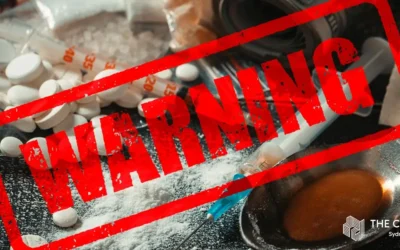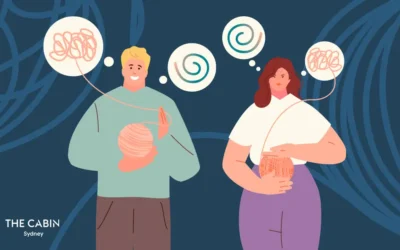You have made it through your rehab programme, but what comes next? How are you expected to jump back into your everyday life and remain drug- and alcohol-free? Read on to find out more about what types of continuing care programmes are out there and how they can help prevent relapse.

The Idea Behind Continuing Care
Upon leaving any inpatient rehab programme, you should receive exit counseling that includes a detailed strategy of how you plan to maintain your sobriety and transition back into daily life in a safe and healthy way. A key part of this plan is developing a solid continuing care regimen in order to extend treatment once you are back at home and, ultimately, to prevent relapse.
Continuing care programmes are an integral part of recovery and provide valuable transitioning tools that allow those recovering to maintain connections with people who fully understand their challenges and can help them ease back into their lives.
It’s normal to feel anxious to return to your daily life after leaving rehab, but continuing care is a vital part of any good addiction treatment programme and should not be overlooked. Research has shown repeatedly that the longer the addiction treatment programme is, the more effective it is, and continuing care is a way of extending treatment even longer – potentially for life.
Preventing Relapse
Among the many benefits, an effective continuing care programme can help to prevent relapse. Anyone who has experience in recovery can tell you that conquering a drug or alcohol addiction is truly a lifelong process. It is an unfortunate fact that around 50% of people in recovery relapse at least once. In many cases, singular relapses can be overcome and the road to recovery resumed again, but there of course is always the danger that relapse can take you back down the path of addiction. The majority of relapses occur within the first 90 days after completing a treatment programme; therefore it is essential that recovering addicts go directly from treatment into an appropriate continuing care regimen.
With the support of continuing care for both the person in recovery and that person’s family, chances of relapse decrease dramatically.
How to Choose the Right Continuing Care Programme?
Continuing care can take many forms – the type of programme you choose to partake in should be determined in partnership with a skilled counselor in order to select one that will be the most effective and logistically feasible for you. While it does not make sense to overcommit to an agenda that will be too stressful or unrealistic to maintain, you should approach this process with an attitude of commitment and seriousness. There must be a careful balance between practicality and effort in order for a continuing care programme to be sustainable in the long run.
Outpatient Programmes
Many outpatient rehabs offer a formal continuing care program for those completing a long-term treatment programme with them, or people returning from inpatient rehab – as an option to extend their recovery process. These programmes are run by specially trained counsellors and involve group therapy and individual sessions. Information on addiction, recovery processes, challenges, and suggestions are shared.
Outpatient programmes typically offer relapse prevention education and continuing care support as part of an overall strategy for maintaining sobriety once a client leaves inpatient treatment. Outpatient continuing care introduces skills to prevent relapse, helps with social skills, tools for managing stress, anxiety, or depression and understanding family struggles.
Outpatient continuing care services may even include social activities and occasional recreational outings with other recovering addicts. The idea is to create a supportive and inclusive environment in which people in recovery can feel comfortable and free from judgment.
Support Groups
Support groups are an important part of any continuing care plan and can be accessed on your own. Some addiction recovery support groups specialize in specific types of addiction (drugs, alcohol, gambling, etc.) while others offer general support.
Being as many addiction treatment programmes are based on the 12-step model, it is very common for those exiting a long-term treatment programme to immediately begin attending Alcoholics Anonymous or Narcotics Anonymous meetings as they are also based on this model. AA and NA meetings offer guidance on how to integrate principles learned in rehab into real life, and a venue to discuss and work through challenges with others who are going or have already gone through similar processes.
NA and AA meetings also encourage recovering addicts to connect with a sponsor: someone who has been clean for an extended time and can offer advice and support. Additionally, awards of recognition are often given on landmark occasions, such as achieving a certain number of days sober. These forms of encouragement foster a sense of belonging in a positive way and provide consistent reminders of what you are trying to maintain with a sober lifestyle.
Online Support
If there are no outpatient continuing care programmes in your area, there are many online options for support, and your treatment centre may even provide a specialized online aftercare programme that can be accessed remotely.
Sober Living Homes
Sober living communities, sometimes referred to as halfway houses, are also options for continuing care. As the name suggests, these facilities are a halfway point between inpatient treatment and ‘normal’ life. Sober living communities offer a safe space for the recovering individual to remain, ensure a lack of exposure to addictive substances, and receive personal support from other recovering addicts and resident counselors. The average length of stay ranges from three to 12 months depending on progress and preference.
Sober living communities are a good option for those who have struggled with addiction or relapse in the past, or simply prefer a more structured environment.
Involving Friends and Family in your Continuing Care Plan
Involving family members in addiction recovery greatly increases the chances of long-term success, and involving them in your continuing care plan is no exception. Many outpatient programmes offer counseling and education to help family members understand addiction and what they can do to support your recovery on an ongoing basis.
If you are currently seeking a treatment programme, the degree of continuing care support that you will receive should be an important consideration. Top rehab reviews including information regarding continuing care support can be found here.
Let our team of professionals demystify the topic
call us directly on
1 800 251 994


